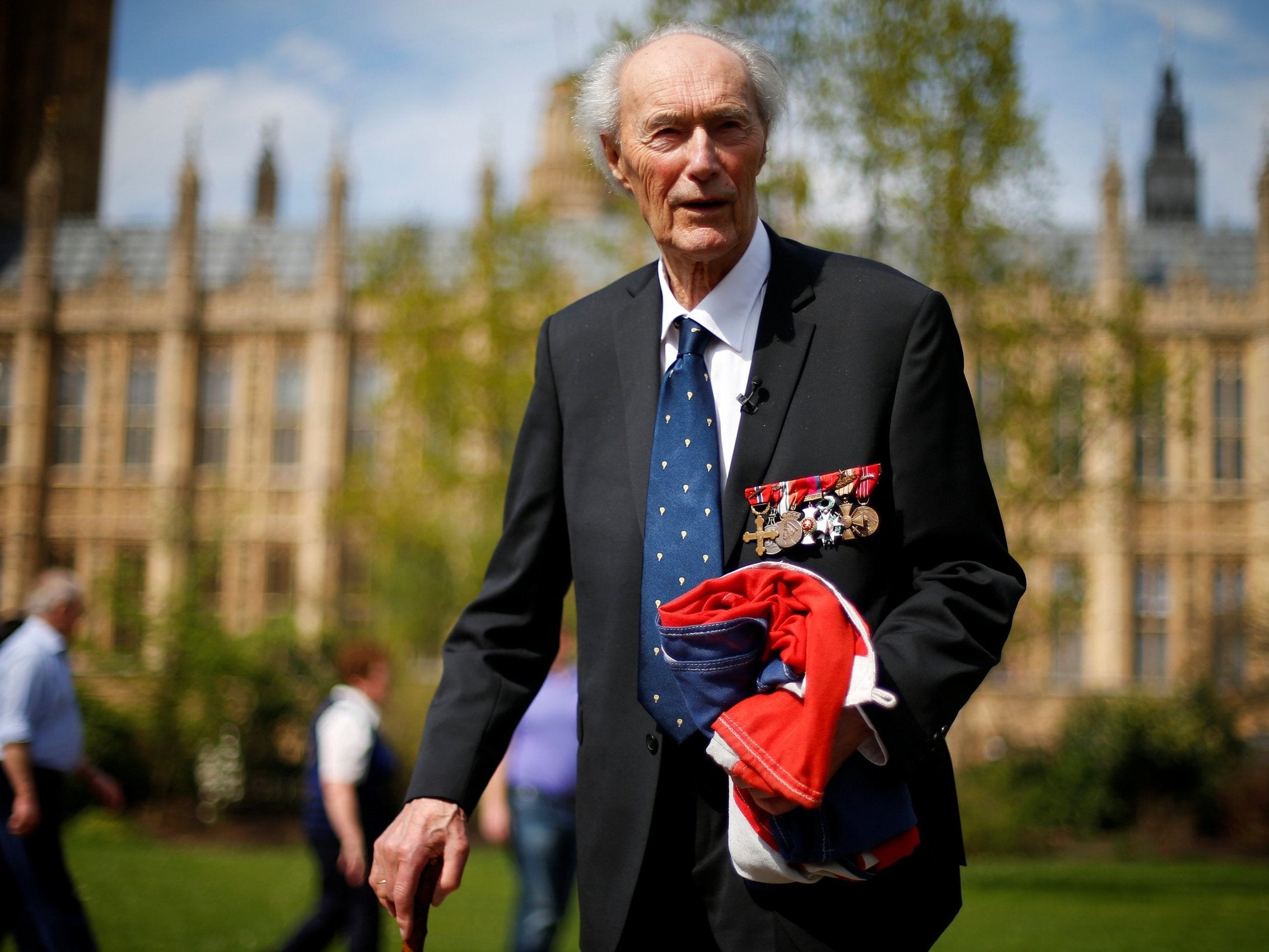Joachim Ronneberg: Norwegian resistance fighter who stopped Nazi nuclear programme dies
‘One of our great heroes,’ says Norway’s prime minister

The Norwegian Second World War hero who helped to halt the Nazis’ nuclear weapons programme has died at the age of 99.
Joachim Ronneberg led the British-trained commando team that destroyed a hydroelectric plant in Norway’s Telemark region, where the Germans were attempting to produce atomic bombs.
Operation Gunnerside – the top-secret 1943 raid by Mr Ronneberg and other Norwegian resistance fighters – was most famously captured in the film The Heroes of Telemark, starring Kirk Douglas.
“He is one of our great heroes,” said Noway’s Prime Minister Erna Solberg. “Ronneberg is probably the last of the best-known resistance fighters to pass away.”
Born in the town of Alesund in 1919, Mr Ronneberg fled Norway after the Nazi invasion of 1940. He made it to Scotland by boat before meeting up with other Norwegian resistance fighters training with the Special Operations Executive (SOE) in Britain.
He was chosen to lead the daring mission in February 1943 on the Norsk Hydro facility, where German military scientists were trying to beat Allied forces to produce the first atomic bomb.
The team used skis to approach the plant on the mountainside, setting off a series of explosives before escaping over the mountain range into Sweden.
“We were a gang of friends doing a job together,” he told the BBC at an event marking the 70th anniversary of Operation Gunnerside.
Mr Ronneberg said the commandos had thought of the mission as “a one-way trip”.
The former soldier became a journalist after the war ended. He rarely spoke about his exploits, but continued to warn young people of the danger totalitarianism could return.
“Those growing up today need to understand that we must always be ready to fight for peace and freedom,” he said.
Additional reporting by agencies
Join our commenting forum
Join thought-provoking conversations, follow other Independent readers and see their replies
Comments
Bookmark popover
Removed from bookmarks